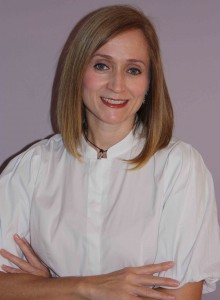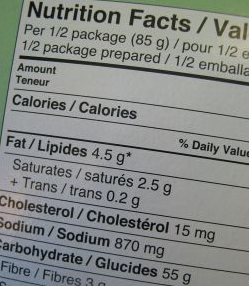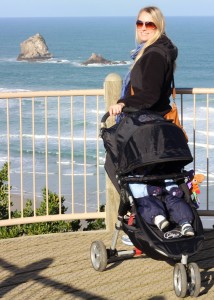
Research shows children in an ethnic minority have a greater risk of being obese.
A special report has researched the issues of nationality and migration and their effects on children’s health. The new study explores the ties between childhood weight problems, socioeconomic status, and nationality. It found race, ethnicity, and immigrant status are risk factors for weight problems among children in the US and England.
The study, Migrant Youths and Children of Migrants in a Globalized World, was published in September’s ANNALS of the American Academy of Political and Social Science. In addition to finding links between ethnicity and weight problems, the study also showed socioeconomic status is only a risk factor among white children, not those of other races.

“The system here can be fairly overwhelmed, meaning less patient-doctor time.”
Have you noticed any specific concerns that expat parents in Qatar tend to have?
The biggest concern I’ve noticed expat parents having is in regard to emergency treatment – ‘Who’s the best?’, ‘Where should I go if someone in my family needs emergency care?’. Expats tend to have concerns over the quality of care they’ll receive.
Another concern is over the availability of certain medications. I’ve found that patients often only ask about this at the last minute, and then panic when the answer to whether they are available is ‘no’. Many medicines that are readily available in countries such as the US are not as easy to come by in Qatar. If they are, they can quickly run out of stock. Examples include insulin, blood-pressure medications and birth-control. It can be very cumbersome when a patient needs to change medication due to the fact that the one they usually use is not available. Some medicines are stocked more in the government system than the private system, so if an expat needs to come by a certain type of medication, they may find themselves having to wait three hours for an appointment in a busy government hospital.

Women who read the nutritional information on labels are thinner than those who don’t.
According to a recent international study, reading the labels on food is linked to obesity prevention, particularly in women. Data from the U.S. shows women who routinely read nutritional information weigh four kilograms less than women who don’t read the information. The data was taken from the annual National Health Interview Survey (NHIS).
This information would support the inclusion of nutritional information such as calorie content on restaurant menus and other public establishments. McDonald’s, the world’s largest hamburger chain will start printing the calorie content of its food in the U.S this month. In countries such as Japan, nutritional information is displayed on nearly all menus, from Starbucks to local bars.

Ania gave birth in Austria and shares what she learnt from the experience
Having your first baby can be nerve-wracking. Having your first baby in a foreign country where you don’t speak the language can be absolutely petrifying. At least, at first. In my case, when I found myself pregnant in Vienna, Austria, having my first baby there proved to be just about the best experience I could have asked for. Here’s what I took away from the experience.
When looking for doctors, recommendations are your best friend
While this is true just about anywhere, in a foreign place, you don’t want to sign yourself up to be a guinea pig if you can avoid it. If you ask around, you’ll find that there are already doctors who speak your native language, and who are used to working with your nationality on a cultural level. For example, my Austrian doctor knew that as an American, I’d probably have a lot more questions than her average patient.

Jenny shares her expat experiences of pregnancy and health care in New Zealand
The style, quality, affordability, and availability of health care were all big thoughts in my mind when my husband and I moved to New Zealand in 2010. I’m a nurse. I would be practising in this system so naturally, I had a curiosity about it. Using it as a consumer, though, wasn’t one of my big concerns. We’re both generally healthy and we had no children. Neither of us have any chronic conditions, nor have we had cause to use the healthcare system in the States too much.
I did some basic research on NZ health care and formed the conclusion that the system here was of a high enough quality that we should have no qualms about moving here, especially since our work-to-residency visas entitled us to the same health benefits as citizens. I imagined that my use of the system would be limited.

Myra tells us of her pregnancy experience in Beijing
One frosty day during wintertime in Beijing, I absent-mindedly left the house without a hat. Not that a hat was so important, except for the fact that I had just taken a shower, my hair was still wet and it was the middle of winter. Within minutes my hair was frozen to my head and I had a splitting headache. How could I have been so forgetful?
It was too late to turn back though; I had an appointment to keep and it would take me an hour to get across Beijing by subway.

How safe are the toys in your new country?
If you’re moving abroad toy standards in your new home probably aren’t something that has been worrying you. However, if you are used to the highly regulated EU or U.S. safety standards, it pays to double check the quality of toys before you buy them abroad.
The EU has some of the toughest toy safety laws in the world and has released this video to advise parents on how to buy and use toys safely.
All toys in the EU which have passed the strict regulations will have a CE mark on them. You can buy these toys knowing they follow all applicable safety guidelines. The EU Toy Safety Campaign also reminds parents to read guidelines and safety information that comes with toys. Many accidents happen because the toy or device isn’t be used correctly.

Measles cases have not risen in Europe, but the number of whooping cough incidents has surged in the UK.
According to new data, transmission rates for measles continues to be low in Europe. The report, from the European Centre for Disease Prevention and Control (ECDC), shows no new large outbreaks since the last report.
In the 12 months (June 2011- May 2012) a total of 12,594 cases were reported. France, Romania, Spain and Italy accounted for 79 percent of the cases. The majority of cases (71%) were found to be non-vaccinated. Out of the total number of cases, none were fatal.

For many women in the United States the introduction of the Affordable Care Act means greater access to women’s health services.
The United States is one of 23 countries where maternal mortality is rising. According to a WHO report, Trends in maternal mortality: 1990 to 2010, the rate in the U.S. is rising along with countries such as Zimbabwe and Costa Rica. This could be about to change as the Affordable Care Act comes into effect on the 1st August. The new Act will require insurers and Medicaid to cover preventative services for women without charging a co-pay, co-insurance or a deductible.
America currently has the highest maternal mortality, that is pregnant women or new mothers dying, than any other industrialized nation. In 2009, 16.1 women died per 100,000 live births, according to the Health and Human Services Administration. This compares to a low of 6.6 deaths per 100,000 in 1987.

Aidan shares her tips on getting to know the French healthcare system
Before we moved to France I had a neat list of worries. At the top, competing with ‘what to do about school’ was how to find a good doctor, what to do when we got sick and how to do it in French.
If you have children you will want to find a general practitioner right away. I looked to the mayor’s office for a list of local physicians. In France you need a doctor’s sign-off for children to attend school or participate in extracurricular activities.
Primary to this search was finding a doctor with a bit of English who would understand and be patient while I tried to express myself in French. This will depend on where you live and if you have a network to point you in the right direction. My doctor speaks conversational English but my lack of French and his lack of English don’t get in the way of our understanding. Don’t be afraid to draw pictures of tonsils or take your dictionary with you to an appointment. Be prepared, and your doctor, if she’s the right one, will be patient.